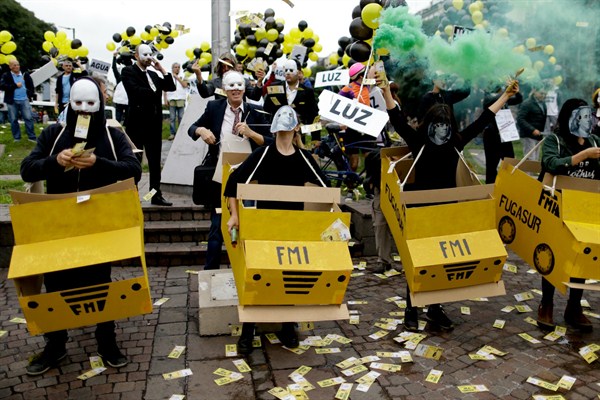Last Friday, the International Monetary Fund formally opened negotiations with Argentina for a financial bailout, after a run on the Argentine peso drove its value down by roughly 20 percent against the dollar between January and the beginning of May. The financial crisis comes against the backdrop of Argentine President Mauricio Macri’s unpopular economic reforms, which have so far struggled to deliver promised results. In an email interview, Bruno Binetti, a Buenos Aires-based nonresident fellow at the Inter-American Dialogue, discusses the causes of the financial crisis, and the economic and political implications of an IMF bailout for Argentina and Macri.
World Politics Review: What’s driving the Argentine peso’s decline, and how has it affected Mauricio Macri’s fiscal and economic policy priorities?
Bruno Binetti: The run against the peso was triggered by the rise in U.S. interest rates, which led to the devaluation of many emerging economies’ currencies against the dollar. Argentina was particularly vulnerable to this external shock for three reasons. First, the peso was overvalued, as the exchange rate had not kept up with inflation. Second, the country needs to borrow abroad to cover a large fiscal deficit—over 5 percent of GDP—and a large current account deficit, which is the result of weak exports, high imports and a net outflow of capital. Finally, financial markets penalized the peso due to a perceived lack of coordination in Argentina’s economic policy.

